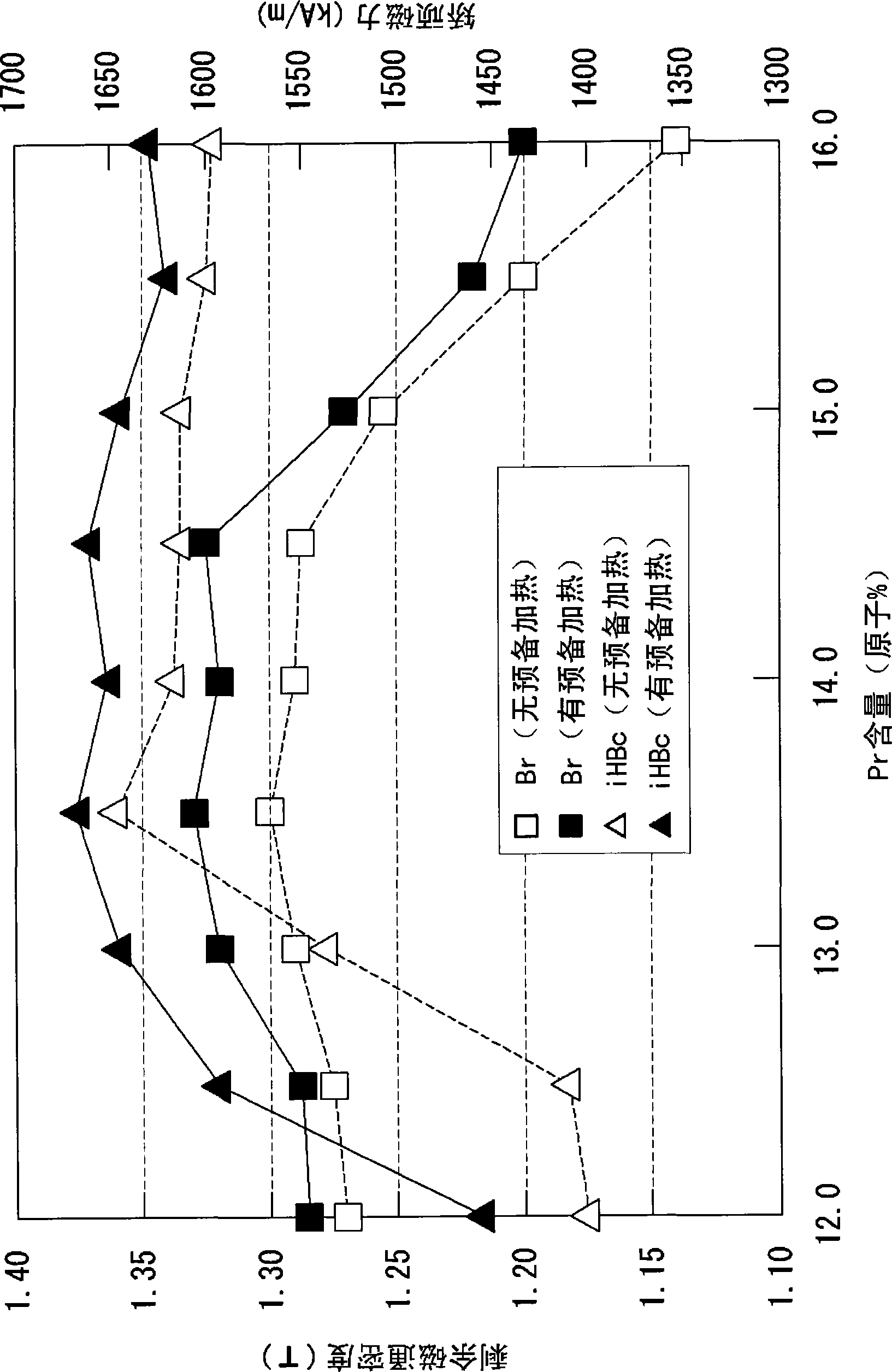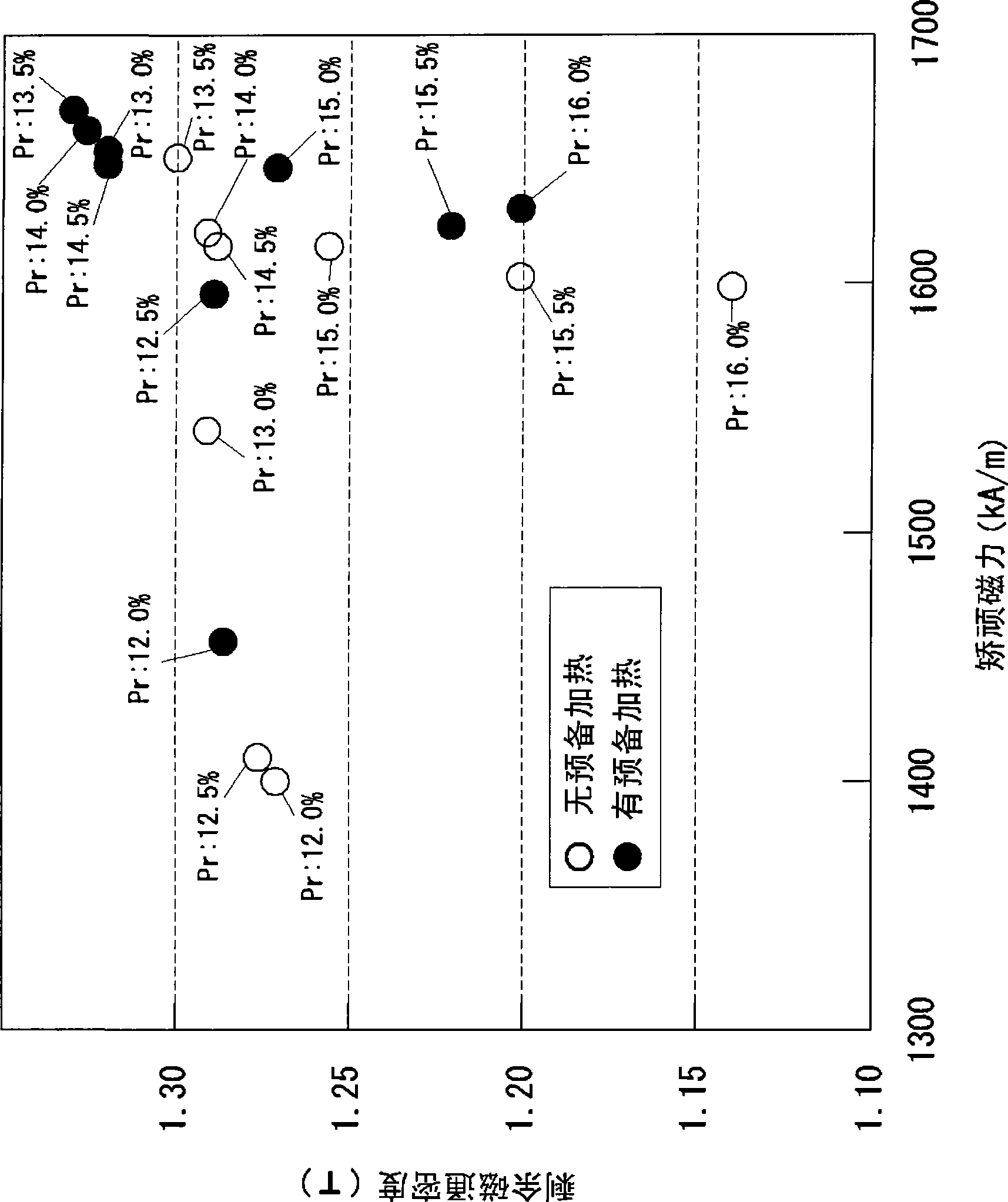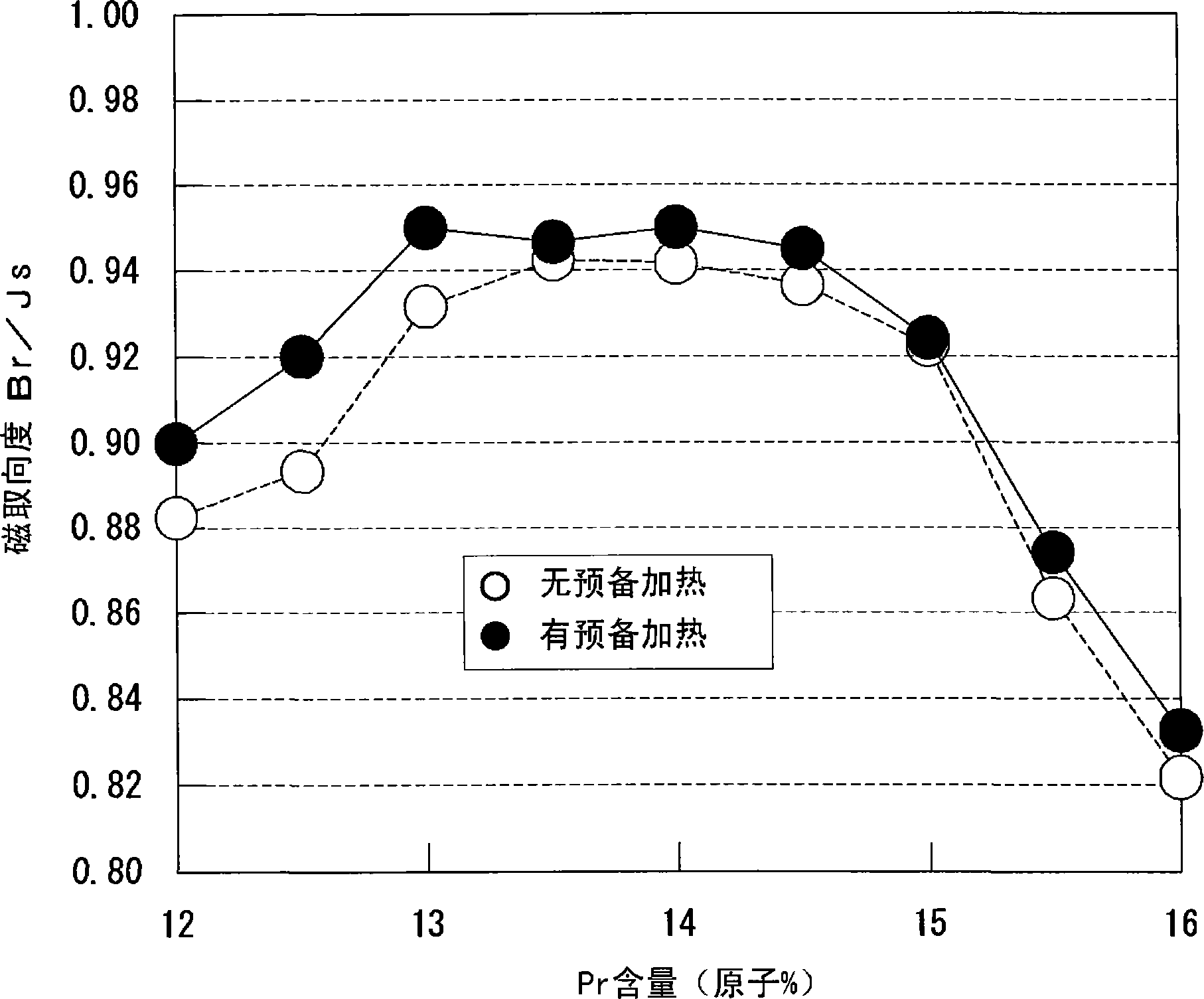Material for anisotropic magnet and method of manufacturing the same
A technology of magnetic anisotropy and manufacturing method, which is applied in the manufacturing of magnetic materials, magnetic objects, inductors/transformers/magnets, etc., can solve the problem that sufficient coercivity cannot be obtained, sufficient residual magnetic flux density may not be obtained, and it is difficult to improve at the same time. and other problems, to achieve the effect of improving coercivity and high coercivity
- Summary
- Abstract
- Description
- Claims
- Application Information
AI Technical Summary
Problems solved by technology
Method used
Image
Examples
preparation example Construction
[0091] When the component composition and the preparation conditions described later are optimized, the residual magnetic flux density can be increased even if the coercive force is maintained at a high level. This is considered to be due to the absence of coarsening of crystal grains and increase in the oxygen content, and improvement in the degree of orientation of the easy axis of magnetization.
[0092] The crystal grain size of the main phase has an influence on the coercive force. Generally, the smaller the crystal grain size of the main phase, the larger the coercive force. In order to obtain a high coercive force, the crystal grain size is preferably 1 μm or less. The crystal particle size is further preferably 500 nm or less, more preferably 300 nm or less, still more preferably 200 nm or less.
[0093] Here "crystal particle size" refers to the value obtained by the following steps:
[0094] (a) Take a picture of the ab plane of the crystal (the plane parallel to ...
Embodiment 11
[0164] 1. Preparation of Specimen
[0165] An alloy melt having a defined composition is quenched. The obtained ribbon was pulverized to obtain alloy powder. The alloy powder is cold-formed, and the cold-formed body is hot-formed. Further, the thermoformed body is subjected to thermoplastic processing to obtain a magnetically anisotropic magnet raw material.
[0166] The alloy composition is Pr x Fe 94.05-x B 5.5 Ga 0.45 (x=12.0, 12.5, 13.0, 13.5, 14.0, 14.5, 15.0, 15.5, 16.0. Contains unavoidable impurities.).
[0167] In addition, the preheating conditions and thermoforming conditions are:
[0168] (1) Preheating at 750°C×10min + hot pressing at 815°C (mold temperature) (with preheating), or
[0169] (2) Hot pressing at 850°C (mold temperature) (without preliminary heating).
[0170] 2. Test method
[0171] 2.1 Magnetic properties
[0172] The magnetically anisotropic magnet raw material was magnetically charged, and its magnetic properties were measured wit...
Embodiment 12
[0191] 1. Preparation of Specimen
[0192] In addition to the alloy composition as Pr 13.09 Fe 81.51-y B 5.4 Ga y (y=0, 0.1, 0.2, 0.3, 0.4, 0.5, 0.6, 0.7, 0.8. Unavoidable impurities are included.) Except that, a magnetically anisotropic magnet raw material was prepared in the same manner as in Example 1.1.
[0193] 2. Test method
[0194] Magnetically anisotropic magnet raw materials were made magnetic, and their magnetic properties were measured with a DC BH tracer.
[0195] 3. Results
[0196] Figure 4 The relationship between Ga content and coercive force (iHc) is shown.
[0197] From Figure 4 As can be seen:
[0198] (1) When the Ga content is less than 0.1 at%, the coercive force (iHc) is extremely reduced,
[0199] (2) When the Ga content exceeds 0.7 at%, the coercive force (iHc) decreases,
[0200] (3) In order to obtain a high coercive force, the Ga content is preferably 0.2 to 0.7 at%, more preferably 0.4 to 0.5 at%.
[0201] (4) When preheating i...
PUM
| Property | Measurement | Unit |
|---|---|---|
| crystal size | aaaaa | aaaaa |
| diameter | aaaaa | aaaaa |
| particle diameter | aaaaa | aaaaa |
Abstract
Description
Claims
Application Information
 Login to View More
Login to View More - R&D
- Intellectual Property
- Life Sciences
- Materials
- Tech Scout
- Unparalleled Data Quality
- Higher Quality Content
- 60% Fewer Hallucinations
Browse by: Latest US Patents, China's latest patents, Technical Efficacy Thesaurus, Application Domain, Technology Topic, Popular Technical Reports.
© 2025 PatSnap. All rights reserved.Legal|Privacy policy|Modern Slavery Act Transparency Statement|Sitemap|About US| Contact US: help@patsnap.com



